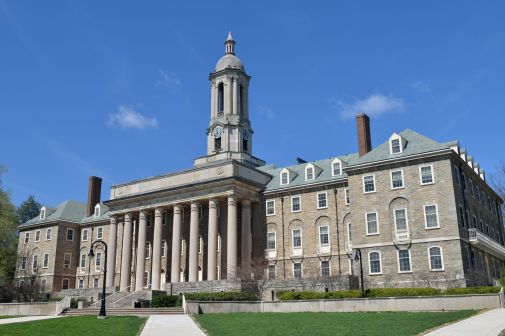Universities are fighting lawsuits claiming ‘subpar’ remote education

Students forced to take online classes during the pandemic have filed nearly 100 class-action lawsuits against their colleges and universities, demanding partial tuition reimbursement for failing to deliver the quality of education students had initially payed for.
And while the majority of colleges have rejected the students’ demands for their money back, claiming that students are being taught the same curriculum they would have received through in-person classes and are still earning credits towards their degrees, students argue that the online classes are poor substitutes for the education experience universities had promised them at the time of payment.
The average cost for one year of tuition at a four-year public university, including room and board, adds up to nearly $22,000, according to the College Board. And for private schools, that total jumps to nearly $50,000 per year.
However, the quality of education has suffered greatly with the forced transition to online learning during the pandemic, a University of Colorado, Boulder student wrote on the university’s Reddit page.
“We can literally get the same education that CU is currently offering from YouTube at the cost of an internet bill,” the student said. “So why should we continue to pay college tuition rates for classes?”
Class-action lawsuits have been filed against nearly 100 higher education institutions, according to the law firm Bryan Cave Leighton Paisner, which advises colleges and universities. In addition to the University of Colorado, Boulder, these include Brown, Columbia, Cornell, Drexel, Michigan State, New York University, Penn State, Purdue and the University of California.
The majority of the complaints revolve around what students say is a decreased quality of education by switching from the classroom to online learning.
“The online learning options being offered to NYU students are subpar in practically every aspect,” reads a class-action lawsuit filed against New York University. The suit also claims remote instruction is “in no way the equivalent of” the in-person experience students “contracted and paid for.”
Many of the lawsuits also cite the loss of other benefits, like access to labs, libraries, extracurricular activities, athletics, social development and the independence of living away from home.
However, universities are not giving in to students’ demands for tuition reimbursement and several of the lawsuits have not stood up in court. And several of the institutions being sued over the switch to online learning without a reduction in tuition cost have filed motions to dismiss the suits against them, including Brown, Harvard, Northeastern, Purdue and Yale.
In response to the lawsuit against Yale, which claims that the university should partially refund tuition after switching to online classes for much of the spring 2020 term, the university stated in a motion to dismiss that it is not up to the courts to judge the academic experience a school offers.
“Put simply, no breach of contract arises simply because a plaintiff subjectively feels ‘that the education was not good enough,’” Yale’s motion reads.
At Northeastern University, the lawsuit requesting tuition reimbursement was struck down by a federal judge this month, who said that the university did not promise in-person learning.
And while some institutions, including Harvard University, Smith College in Massachusetts and the University of Arizona, have given students refunds for room and board expenses, students upset with the quality of remote learning continue to demand that universities take further steps in decreasing the financial burden they’re placing on students.
“We are the kids going into debt to attend this school,” another University of Colorado, Boulder student wrote on Reddit. “I’m just doing busywork at this point and not learning anything. Nobody knows how to handle this correctly. The students do have a right to be upset.”




